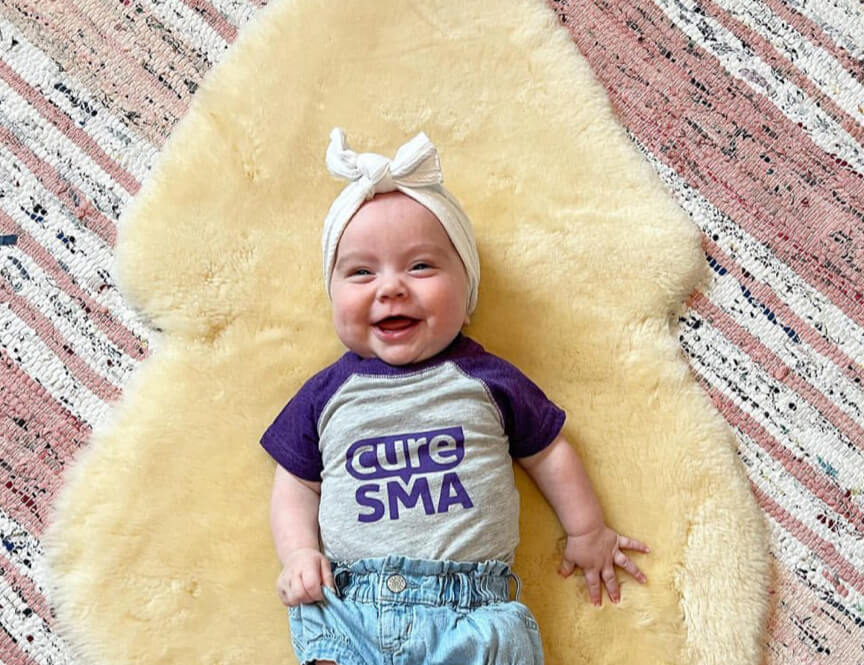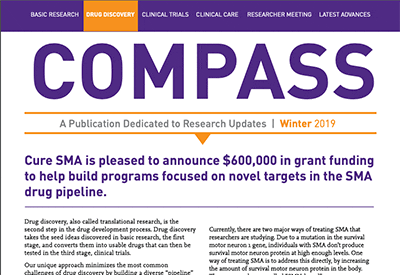Genentech, a member of the Roche Group, recently announced new data at the 71st American Academy of Neurology (AAN) Annual Meeting from the dose-finding Part 1 of the pivotal FIREFISH trial showing infants with Type 1 spinal muscular atrophy (SMA) achieved key motor milestones after one year of treatment with investigational risdiplam. Among the infants who received the dose selected for the confirmatory Part 2 of the study, seven (41.2 percent) were able to sit without support for at least 5 seconds, assessed by the Gross Motor Scale of the Bayley Scales of Infant and Toddler Development – Third Edition (BSID-III). In addition, 11 (64.7 percent) infants were able to sit (with or without support) while nine (52.9 percent) achieved upright head control after 12 months of treatment as assessed by the Hammersmith Infant Neurological Examination Module 2 (HINE-2). Finally, one infant (5.9 percent) achieved the milestone of standing (supports weight) by this 12-month time point.
Highlights of Genentech’s data for Spinal Muscular Atrophy:
- In the dose-finding Part 1 of FIREFISH, infants with Type 1 spinal muscular atrophy survive and achieve key milestones beyond those expected in the natural history of the disease
- New data from the dose-finding Part 1 of SUNFISH reinforce risdiplam as a promising investigational therapy for people with Type 2 or 3 spinal muscular atrophy
- No treatment-related safety findings leading to withdrawal seen to date in risdiplam trials
FIREFISH
Part 1 of FIREFISH also assessed motor function with the Children’s Hospital of Philadelphia Infant Test of Neuromuscular Disorders (CHOP-INTEND), a scale used for infants with Type 1 SMA. Results showed that 10 out of 17 infants (58.8 percent) in the therapeutically dosed group achieved a CHOP-INTEND total score of 40 points or more.
Among all 21 infants enrolled in Part 1 of the FIREFISH study, the median duration of treatment is 14.8 months, with 19 infants treated for more than 12 months. Three infants experienced fatal complications of their disease after approximately one, eight and 13 months of treatment. None of these have been attributed by the investigator as related to risdiplam. No infant has lost the ability to swallow during the study, and no infant has required tracheostomy or permanent ventilation. The event-free survival was 18 out of 21 (85.7 percent) overall and 15 out of 17 (88.2 percent) in the therapeutically dosed group. The most common adverse events included fever, upper respiratory tract infections, diarrhea, vomiting, cough, pneumonia, and constipation.
SUNFISH
Genentech also presented new data from Part 1 of its pivotal SUNFISH trial in people aged 2-25 years with Type 2 or 3 SMA. The dose-finding SUNFISH Part 1 includes a particularly broad patient population. Baseline functional status ranged from individuals unable to sit to those capable of walking. Scoliosis ranged from none to severe. As previously reported, a sustained median increase from baseline in SMN protein of greater than two-fold, as measured in blood, was seen after 12 months of treatment with risdiplam.
The most common adverse events in Part 1 of the SUNFISH study were fever, cough, vomiting, upper respiratory tract infections, persistent sore throat, and cold. The most common serious adverse event that occurred in two of the 51 patients exposed to risdiplam was pneumonia. To date there have been no treatment-related safety findings leading to withdrawal from any study.
The confirmatory Part 2 portions of the SUNFISH and FIREFISH studies have completed enrollment and will conduct their primary efficacy analyses in Q4 2019 and Q1 2020, respectively.
Roche and Genentech are planning to include the new data presented at the AAN Annual Meeting in regulatory filings with the U.S. Food and Drug Administration and European Medicines Agency during the second half of 2019.
Full session details and data presentation listings for the 2019 AAN Annual Meeting can be found at the meeting website: https://www.aan.com/conferences-community/annual-meeting/.
About risdiplam
Risdiplam is an investigational, oral medicine that is systemically distributed and designed to increase SMN protein levels in the central nervous system (CNS) and throughout the body. It is designed to help the SMN2 gene produce more functional SMN protein, to better support motor neurons and muscle function. Roche and Genentech are leading the clinical development of risdiplam in collaboration with the SMA Foundation and PTC Therapeutics. Risdiplam is currently being evaluated in three multicenter trials in people with SMA:
- FIREFISH – an open-label trial in infants aged one to seven months with Type 1 SMA
- SUNFISH – a double-blind, placebo-controlled trial in children and young adults (two to 25 years old) with Type 2 and 3 SMA
- JEWELFISH – an open-label exploratory trial in people aged 12–60 with Type 2 or 3 SMA who have been previously treated with SMN-targeting therapy as part of a clinical study
A new trial, RAINBOWFISH in pre-symptomatic SMA, was initiated in early 2019.



